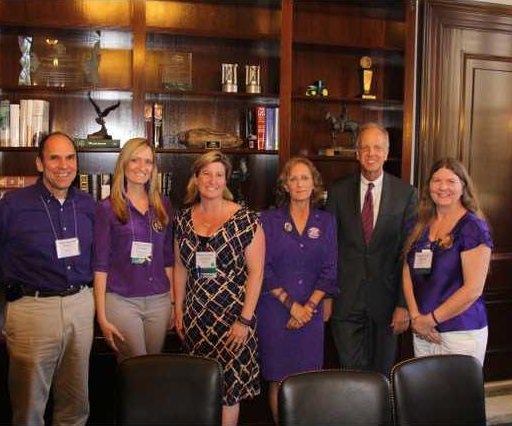Julie McClaren spends part of her day educating patients about cervical cancer and how to prevent it. But she wants to reach even more women with this information.
McClaren is an advanced registered nurse practitioner at the Women’s Health Center at St. Rose Ambulatory & Surgery Center. She is available to any civic, church or women’s group that wants to learn more about cervical cancer and other women’s health issues.
"Education is critical when it comes to preventive medicine," McClaren said. "When I hear people say ‘ignorance is bliss,’ it really bothers me. Ignorance can kill you when it comes to cervical cancer."
January is observed nationally as Cervical Cancer Screening Month and Cervical Health Awareness Month; McClaren is using the opportunity to share facts about the disease.
"Since January is a special month, I wanted to remind the community that I will visit with any group that wants more information," McClaren said. "We want to explain to women, as well as the men in their lives, why Pap tests and the vaccine for human papillomavirus (HPV) are so crucial.
"The vast majority of cervical cancer cases are caused by high-risk HPV," McClaren explained. "The Pap test determines the presence of HPV. And the only way to get HPV is to have sexual relations with someone who has it. Therefore, this is important to men and women."
In addition, she noted, sometimes there are no symptoms but a Pap test can catch cervical cancer early. An annual test is recommended for women starting at age 21 because if HPV is acquired, it can take up to 10 years for a minor lesion to turn into invasive cancer.
"It can go from zero to cancer within 10 years," McClaren said. "But with regular Pap exams, we have time to catch it early."
McClaren acknowledged that the HPV vaccine for younger people has become controversial. "Some people think if you vaccinate 10-year-old children, you are encouraging them to have sex. That is not the case — nothing could be further from the truth.
"It is just another immunization in the recommended list of vaccines that could save their lives down the road," McClaren continued.
The choice is simple: take the risk of contracting HPV or get the vaccine that prevents it, McClaren said.
The vaccine is recommended for girls and boys, age 9 and up to age 26, she added, noting it is important to vaccinate before sexual activity begins. The virus is so common that most people get it soon after they start having sex but it usually goes away without adverse effects.
"However," McClaren stressed, "when it doesn’t go away, the risk of cervical cancer and genital warts increases substantially."
The vaccine is taken in a series of three shots over a six-month period, which protects against the most frequent high-risk HPV strains.
Any group that wants to hear more about this and/or other women’s health issues is encouraged to contact McClaren by calling St. Rose’s Women Health Center, 620-793-5510, or Stacy Hefley, St. Rose marketing and volunteer coordinator, 620-786-6284.





